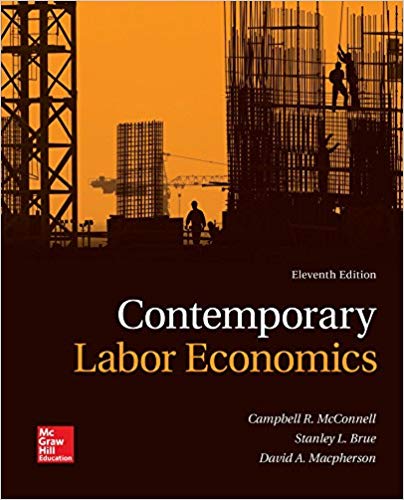Use a workleisure diagram that includes nonlabor income to portray an individual who is maximizing utility by
Question:
Use a work–leisure diagram that includes nonlabor income to portray an individual who is maximizing utility by working, say, eight hours per day. Now compare the labor supply effects of imposing (a) A lump-sum tax (a tax that is the same absolute amount at all levels of earned income) (b) A proportional tax of, say, 30 percent on earned income.
Do hours of work rise or fall in each case?
Can you generalize these outcomes to all individuals in the economy? Explain.
Fantastic news! We've Found the answer you've been seeking!
Step by Step Answer:
Related Book For 

Contemporary Labor Economics
ISBN: 978-1259290602
11th Edition
Authors: Campbell R. McConnell, Stanley L. Brue, David Macpherson
Question Posted:





